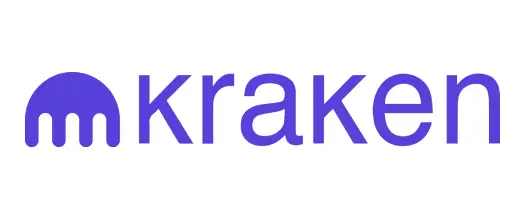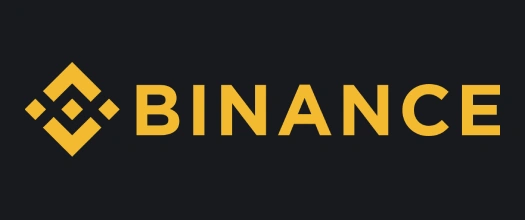Cryptocurrency staking has emerged as a popular method for earning passive income in the digital asset space. The practice has also gained traction in the UK, where interest in staking continues to grow, coupled with increasing demand for reliable, secure crypto exchanges that facilitate the activity.
While there has been some uncertainty surrounding the legal status of crypto staking in the UK, regulatory amendments introduced at the beginning of 2025 have deemed crypto staking a non-CIS (collective investment scheme) product. UK brokers are therefore allowed to offer this service to British investors.
 Uphold
Uphold Coinbase
Coinbase Kraken
Kraken Binance
BinanceBelow, you can find more information about the best crypto exchanges for coin staking in the UK:
- Authorised by the FCA, Uphold enables UK customers to earn passive income by staking 20 digital coins. Eligible investors can earn up to 15.9% in annual rewards from staking ATOM, 6.15% for SOL, 2.5% for ETH, and 1.85% for ADA.
- Coinbase supports staking of more than 130 cryptocurrencies and altcoins, offering reward rates of up to 14%. UK traders must register and verify their accounts by providing a valid Taxpayer Identification Number (TIN) to become eligible for staking.
- Kraken is an FCA-licensed crypto exchange that offers investors weekly staking rewards on 20 digital coins. The rates are flexible, ranging from 2% to 6% for ADA, 1% to 3% for ETH, and 6% to 9% for TAO, among other cryptocurrencies. Investors can further increase their earnings by opting for bonded staking.
- Bitstamp is a leading cryptocurrency exchange catering to UK customers, although certain services are restricted to professional clients only. The exchange offers flexible staking for more than 300 digital assets, including Solana (from 1.8%) and Ethereum (from 1.24%).
In this article, we explore all aspects of crypto staking and provide valuable insights into finding reliable exchanges where UK-based traders and investors can stake their digital coins with confidence. This article will equip you with the knowledge to make informed decisions, whether you have previous experience or are just getting started in the crypto space.
Be sure to explore our selection of the best exchanges offering staking to UK crypto traders. This selection has been carefully curated based on their staking rates, low fees, overall reputation and range of coins.
Brief Overview of Crypto Staking Regulations in the UK
The UK’s regulatory approach to crypto staking has recently clarified that certain staking activities are exempt from classification as collective investment schemes (CIS). As of 31 January 2025, the UK government has introduced the CIS Crypto Exemption, which removes ‘qualifying crypto asset staking’ from the scope of CIS regulations. This development aligns the UK’s treatment of crypto staking with international standards and supports innovation in the crypto industry.
The new exemption ensures that staking services, including those where crypto assets are pooled to meet minimum staking requirements, do not fall under CIS regulations. This allows firms to offer staking services to UK customers without the need for authorisation as a CIS operator.
The UK aims to foster a pro-innovation environment for crypto assets while ensuring market integrity and consumer protection. This includes robust anti-money laundering (AML) and know-your-customer (KYC) practices, as well as measures to ensure platform security.
The UK continues to evolve its regulatory framework for digital assets, focusing on promoting responsible innovation and mitigating risks. This includes ongoing discussions and policy updates related to crypto assets, which may impact how staking and other crypto services are offered in the future.
What Is Crypto Staking?
Crypto staking is the process of participating in the validation of transactions on a blockchain network by locking up a certain amount of cryptocurrency in a wallet. The practice is primarily used in cryptocurrencies that rely on the Proof-of-Stake (PoS) mechanism and its variants such as Delegated Proof-of-Stake (DPoS) blockchains.
Some staking models have a lock-up period during which staked coins are unavailable. Others allow for more flexible staking, with potential penalties for early unstaking. There are also platforms that offer the so-called ‘liquid staking’, allowing customers to earn rewards while still being able to use their staked assets in DeFi applications.
How Does Coin Staking Differ from Coin Lending?
While both staking and lending involve holding cryptocurrencies to generate passive income, the two operate on fundamentally different principles:
- Staking is essential for the operation and security of blockchains that use PoS or similar consensus mechanisms. It involves committing cryptocurrency to support the network’s validation process. Rewards are generally distributed based on the staked amount and network performance, although other factors can also influence the returns.
- On the other hand, crypto lending entails lending your digital assets to other market participants through a platform or exchange. In return, you earn interest on the lent amount. Unlike staking, lending does not directly contribute to blockchain operations and is more akin to traditional financial lending. The platforms act as intermediaries, connecting lenders with borrowers.
Staking often offers more predictable rewards. Returns from lending, meanwhile, can vary significantly based on market demand, platform policies and the creditworthiness of borrowers.
While both staking and lending can generate passive income, they also carry distinct risks. With staking, potential issues include penalties for improper validator behaviour (slashing) or network instability. Lending, on the other hand, carries counterparty risk (the borrower defaulting) and platform risk (the platform becoming insolvent or being hacked). It is crucial to understand these pitfalls before engaging in either activity.
Ways to Stake Cryptocurrencies
Staking cryptocurrencies can be approached in several ways, each with its own advantages and considerations. The primary options include staking on crypto exchanges for simplicity, joining staking pools for shared resources, or becoming a validator yourself to potentially earn higher rewards.
Below, we offer brief explanations of how each approach works.
- Staking on Crypto Exchanges: Many cryptocurrency exchanges offer staking programmes, allowing customers to stake their coins directly on their platforms. This approach is ideal for beginners, as the exchange handles all technical aspects of the staking process. Customers typically have less control over their staked coins, and the rewards are often lower as a result of platform fees.
- Joining Staking Pools: Staking pools allow multiple coin owners to combine their resources and increase their chances of earning higher and more stable rewards. This method is particularly useful for those holding smaller amounts of cryptocurrency, enabling them to participate in staking without significant capital. Keep in mind that pool operators typically charge fees for their services.
- Becoming a Validator: Running a validator node is the most direct way to participate in staking for people with substantial crypto holdings and sufficient technical expertise. Validators are responsible for verifying transactions and maintaining the blockchain network. While this method offers potentially higher rewards, it requires significant up-front investment, including a substantial amount of the native cryptocurrency as collateral. Ongoing maintenance is also necessary, such as keeping the node software updated, ensuring network connectivity and managing security.
Best Coins Available for Staking
Choosing the right cryptocurrency to stake is critical for maximising your returns and ensuring long-term value. The best staking coins typically combine strong fundamentals, real-world utility and attractive reward structures. Factors such as network security, adoption rates and technological innovation also play significant roles in determining their potential.
- Binance Coin (BNB): The native token of the Binance ecosystem offers competitive staking rewards and is supported by one of the largest crypto exchanges globally. Its widespread adoption and utility make it a smart choice for staking.
- Cosmos (ATOM): Known for its interoperability features, Cosmos allows stakers to earn rewards while contributing to a network that connects various blockchains. Its innovative technology and strong community support make it a standout option for crypto stakers.
- Polkadot (DOT): Polkadot’s multi-chain framework enables stakers to participate in a highly scalable and interconnected ecosystem. It has an attractive rewards structure and focuses on cross-chain compatibility, which further enhances its appeal among crypto enthusiasts.
- Algorand (ALGO): Algorand’s pure Proof-of-Stake (PPoS) mechanism ensures fast and efficient transaction processing. Stakers benefit from high rewards and a network designed for real-world applications.
- Ethereum (ETH): After its transition to Ethereum 2.0, the network has shifted from PoW to PoS, making Ether a viable option for stakers. Its large user base and extensive ecosystem provide stability and growth potential.
Factors to Consider Before Staking Cryptocurrencies
Staking cryptocurrencies can be a great way to earn passive income, but there are several factors you should consider carefully to improve your chances of success. Before committing any coins, it is essential to evaluate aspects such as the value of your chosen cryptocurrency, its real-world utility and inherent volatility, as well as the staking terms and potential rewards.
- Cryptocurrency Value
The value of the cryptocurrency you stake directly impacts your potential returns. Coins with higher market capitalisation and stability are generally safer bets, while smaller altcoins may offer higher rewards but come with increased risk. - Real-Life Application
Cryptocurrencies with real-world use cases and strong adoption are more likely to maintain their value over time. Staking coins that power innovative technologies or solve real problems can provide both financial and strategic benefits. - Volatility Level
The volatility of a cryptocurrency affects the predictability of staking rewards. Highly volatile coins may offer higher returns but can also lead to significant losses. Balancing risk and reward is key to a successful staking strategy.
Finding a Reliable Exchange for Cryptocurrency Staking
Selecting the right exchange for staking is just as important as choosing the right cryptocurrency. A reliable exchange provides security and competitive rewards while complying with local regulatory standards. By carefully assessing the aspects outlined below, you can identify the exchanges that offer the best staking conditions for your goals and needs.
- Overall Reputation and Security: Opt for platforms with a proven track record of security and reliability. Look for features like two-factor authentication (2FA) and cold storage for funds. Authorisation from the FCA is a big plus.
- Money Laundering Regulations (MLRs) Compliance: In the UK, crypto exchanges are subject to Money Laundering Regulations (MLRs), which require registration with the Financial Conduct Authority (FCA) and compliance with anti-money laundering (AML) obligations.
- Staking Rewards Rates: Compare the staking rewards offered by different exchanges to identify those offering the most value. Be wary of platforms advertising unrealistically high rates.
- Minimum Staking Amount: Some exchanges have high minimum requirements to start participating in cryptocurrency staking. Make sure you choose a platform that aligns with your budget and investment goals.
- Supported Coins for Staking: A suitable exchange must support the cryptocurrencies you wish to stake. A diverse selection of coins allows for greater flexibility and diversification.
- Lock-Up Timeframes: Staking often involves locking up your coins for a specific period. Consider the lock-up duration and whether it aligns with your investment plans.
- Platform Features: Look for platforms that offer additional features for market research and education. Ideally, the exchange should also provide 24/7 customer support, available through multiple contact channels.
- Trading Costs: Low trading fees can positively impact your overall returns. Compare the fee structures of different exchanges to find the most cost-effective option.
FAQs
Is staking taxable in the UK?
Yes, staking is taxable in the UK. Staking rewards are treated as taxable income at the time of receipt and are subject to Income Tax. Additionally, if you dispose of the staked assets, any gains are subject to Capital Gains Tax. It is highly recommended to consult a qualified tax adviser in the UK for personalised guidance.
Can I unstake my coins at any time?
The ability to unstake your coins and the timing of unstaking depend on the specific cryptocurrency and the platform or method you use for staking. Some cryptocurrencies or staking programmes have lock-up periods, meaning you cannot access your staked funds until a certain time has passed. Others may allow for more flexible unstaking but could impose penalties for early withdrawal. It is essential to carefully review the staking terms and conditions before staking any assets. Consider your liquidity needs and choose a staking option that aligns with them.
What happens if the value of my staked coins drops?
If the market value of your staked cryptocurrency declines, the overall value of your investment will decrease, even if you are earning staking rewards. This is a key risk to consider, especially with volatile cryptocurrencies. Staking rewards can help offset some losses, but they are unlikely to fully compensate for a significant price drop. Therefore, you need to carefully assess the price volatility of any cryptocurrency before staking it.
Are there risks involved in staking?
Yes, staking carries risks such as slashing (penalties for validator misconduct), platform hacks and market volatility. Make sure to thoroughly research the coin you plan to stake and choose reputable platforms to mitigate these risks.
Can I stake multiple cryptocurrencies at once?
Yes, many platforms allow you to stake multiple cryptocurrencies at the same time. Diversifying your staking portfolio across different cryptocurrencies can help mitigate some risks associated with price volatility or platform-specific issues. However, it is important to remember that all cryptocurrencies carry some level of risk, and diversification does not eliminate risk entirely. Carefully research each cryptocurrency and platform before staking.